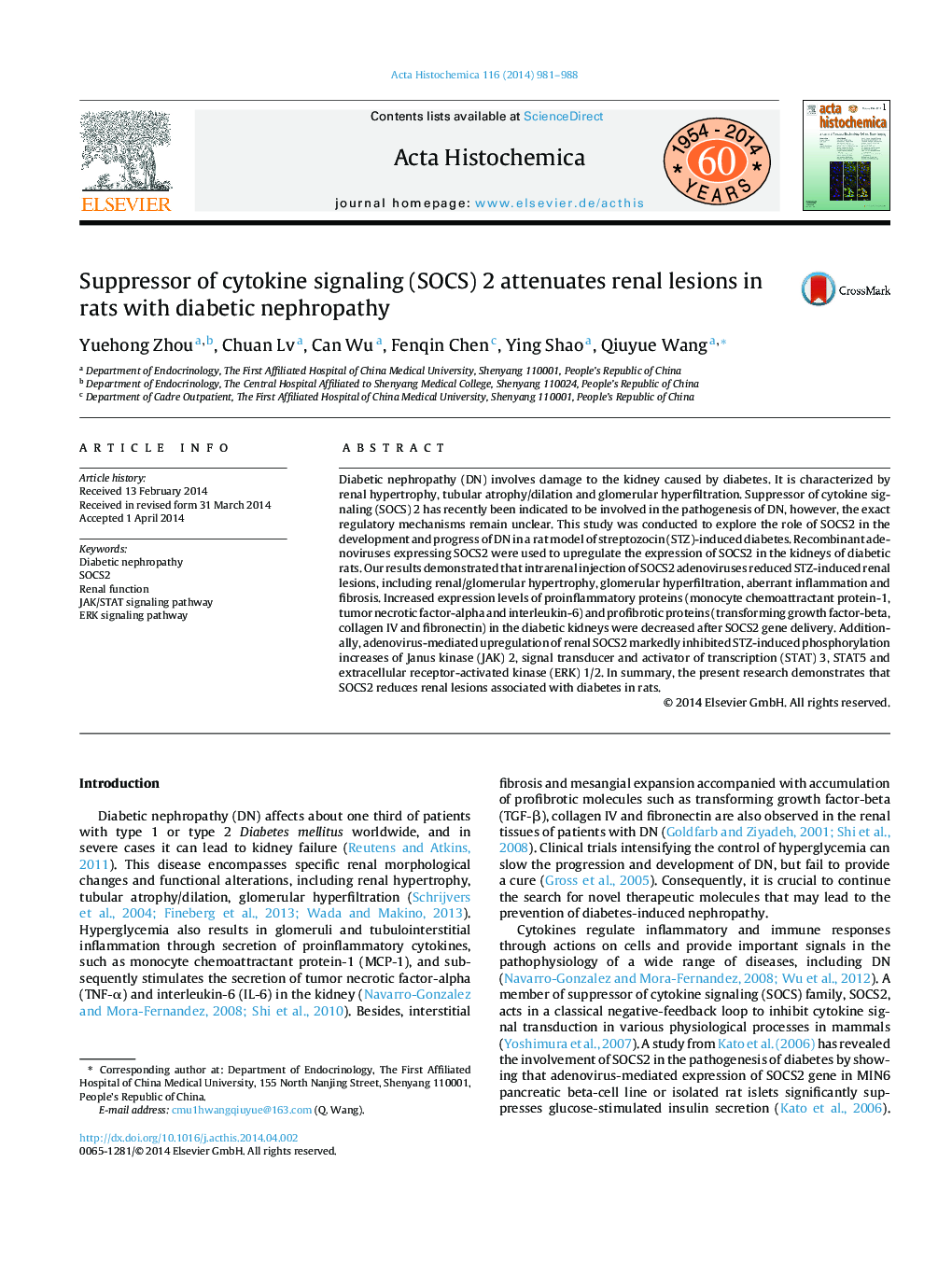| Article ID | Journal | Published Year | Pages | File Type |
|---|---|---|---|---|
| 1923505 | Acta Histochemica | 2014 | 8 Pages |
Diabetic nephropathy (DN) involves damage to the kidney caused by diabetes. It is characterized by renal hypertrophy, tubular atrophy/dilation and glomerular hyperfiltration. Suppressor of cytokine signaling (SOCS) 2 has recently been indicated to be involved in the pathogenesis of DN, however, the exact regulatory mechanisms remain unclear. This study was conducted to explore the role of SOCS2 in the development and progress of DN in a rat model of streptozocin (STZ)-induced diabetes. Recombinant adenoviruses expressing SOCS2 were used to upregulate the expression of SOCS2 in the kidneys of diabetic rats. Our results demonstrated that intrarenal injection of SOCS2 adenoviruses reduced STZ-induced renal lesions, including renal/glomerular hypertrophy, glomerular hyperfiltration, aberrant inflammation and fibrosis. Increased expression levels of proinflammatory proteins (monocyte chemoattractant protein-1, tumor necrotic factor-alpha and interleukin-6) and profibrotic proteins (transforming growth factor-beta, collagen IV and fibronectin) in the diabetic kidneys were decreased after SOCS2 gene delivery. Additionally, adenovirus-mediated upregulation of renal SOCS2 markedly inhibited STZ-induced phosphorylation increases of Janus kinase (JAK) 2, signal transducer and activator of transcription (STAT) 3, STAT5 and extracellular receptor-activated kinase (ERK) 1/2. In summary, the present research demonstrates that SOCS2 reduces renal lesions associated with diabetes in rats.
